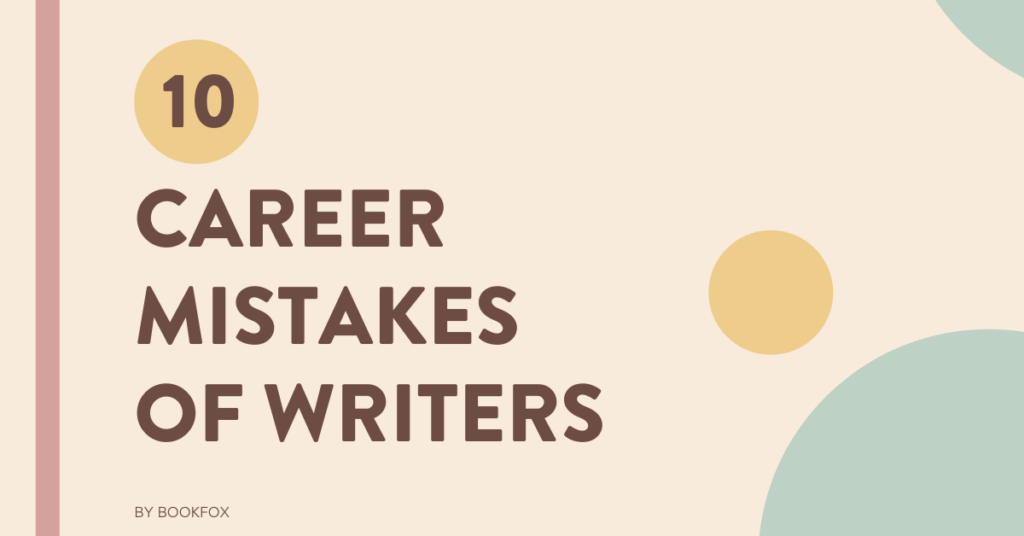
This writing advice would have saved me a lot of broken drafts and a lot of failed expectations.
After you read this, pick your favorite 3 or 4 points and tape them to the wall above your writing desk.
Remind yourself of this writing advice often enough, and you’ll have a much better chance of success.
1. Thinking You’re Smart

Why is this a mistake? Because when you believe you’re smart, you don’t work as hard.
Realize that you’re competing with hundreds of thousands of other writers, and that on the IQ and creativity spectrum, you’re smack dab in the middle. Yeah, you’re more intelligent than the average person, but writers are not the average person.
Believing that you’re smart also hinders:
- your ability to take criticism
- your drive to read
- your ability to learn from others
As you can tell, this is probably the biggest mistake you can make as a writer.
What sets you apart as a writer is not your intelligence, but your work ethic. Develop an amazing work ethic and you will succeed as a writer, guaranteed. Keep thinking you’re smart and you’ll dribble away your writing career in half-baked ideas and slipshod work.
You are not half as smart as you think you are. Unless you tend to think of yourself as incredibly dumb, in which case I’d tell you to buck up, gain some confidence, and write the hell out of your novel.
2. Repressing Your Emotions

To be a writer you need a black belt in emotion. If you squelch your emotion, or let it slip away, it’s the biggest mistake you can make. Harness it. Make it work for you. Put it all into your stories. You will never regret spilling it all on the page.
Most writers avoid writing about the things which are hardest to write about, because they are scared of the emotions they’ll have to deal with. This is exactly wrong. You should write about the things which devastate and thrill you.
The purpose of fiction is to channel and purge reader’s emotions. If you think the purpose of fiction is something else — to educate, or to show morality — you’re wrong. Those are good things, but they are secondary things. If you write something that moves people emotionally, you will be a successful writer. If you do not, you will be a failure.
And the only way you can move others emotionally is by spreading your messy emotions all over the page.
3. Being Idealistic

This is the scourge of young writers. I say young writers rather than beginning writers (who might be older), because the young are often more idealistic about their lives.
If you have a story published, don’t regret it didn’t get published in a better magazine.
Don’t send stories only to the best magazines first, and rack up 40 rejections before you send it to an appropriate venue for your skill level.
Don’t insist on only having the best, most high profile agent.
Don’t insist on writing only the perfect novel. A novel is great not in spite of its imperfections but because of them.
Be practical. Think about your audience and write a book which will sell. Don’t write books that are narcissistic — aimed mainly at pleasuring your own sense of accomplishment.
You will be poor as a writer, so don’t dream about being rich. If you really want to be rich, choose another profession.
4. Writing for Writers instead of Readers

The majority of writers have their work read by other writers — in classrooms, in workshops, in writing groups. So they instinctively write toward pleasing those writers, whether they know it or not.
But surprise! The vast majority of readers of your books are not other writers. And what other writers want is not necessarily what the general public wants.
Don’t be writing trying to please your professors, or your fellow writers. Write to please your audience. And if you don’t know who your audience is, start a book club of exclusively non-writers. It will tell you volumes about how normal readers understand books — what they like and dislike, what they focus on (plot, characters, voice!).
5. Reading Only Good Books

Read bad books. Seriously. Bad books are so educational. I love reading a bad book, especially by a good author (Paul Auster, I’m looking at you).
I make a long list of what doesn’t work in the back, and I remind myself to avoid all those things in my writing. It’s about 10,000 times more instructive than reading a good book.
Because you read a good book seamlessly. You’re caught up in the dream and swept along and by the end you have a wonderful pleasant feeling of being in a bath of words, but you’d be hard pressed to list 5 takeaways from that book that will make you a better writer.
Remember: you don’t have to finish a bad book. Just read enough so that you learn what you need to learn from it.
6. Being a Lone Wolf
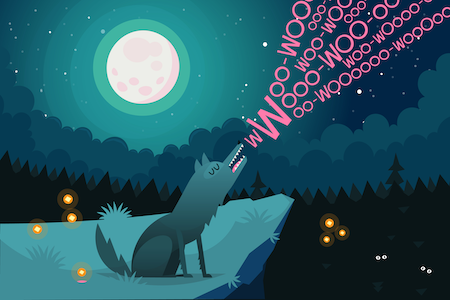
Surround yourself with other writers. As many as possible.
Remember: You are the average of your 5 best writing friends.
Write down your five best writing friends. Now, if you are the average, what are your chances for success?
The more writers you know, the more you’ll understand the industry, the more contacts you’ll have for agents and publishers and teaching positions. Go to conferences, join several writing groups, stay in contact with people, make new friends on Twitter and Facebook and exchange stories with them.
7. Lacking a Mentor

Please find someone who can guide you. If you can’t find one, pay one.
It’ll save you the heartbreak of a thousand wrong directions and false hopes.
Mentors don’t only exist to give you feedback on your manuscript — I’m not talking about that. I’m talking about giving you career coaching. I’m talking about giving you strategies for submitting to agents, guiding you on your path to self-publication, suggesting great conferences for you to attend, telling you when you’re aiming in the wrong direction.
8. Being Impatient
Endurance is the greatest virtue of the writer.
Impatience is the greatest vice.
Everyone wants to hit the bestseller list faster, to have that book published soon, to have the world wake up and recognize their genius.
Patience will get you there.
9. Acting like the Hare, Not the Tortoise
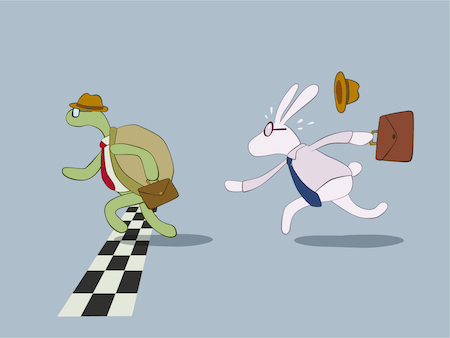
You know the worst writing plan in the world?
“I’ll try it for a year.”
Don’t even think about success with that plan. I guarantee you will fail. Becoming a writer doesn’t take a year. It takes a decade of writing every day. Have you not written every day? Then start your decade from when you start writing every day.
Writing is such a long, long path. Don’t burn out with crazy bursts of writing energy. Go for the long haul.
Slow and steady, working every single day. It’s amazing the amount of words you can pile up when you act like a tortoise.
Have a five-year writing plan, and a ten-year writing plan. Make long goals far in the future, and make small daily goals to make sure you accomplish those big plans.
Don’t overcommit yourself to unrealistic goals and burn out.
If you’ve enjoyed this post, make sure to check out my other post on 13 Mistakes Beginning Writers Should Avoid.
10. Sticking with the Same Genre
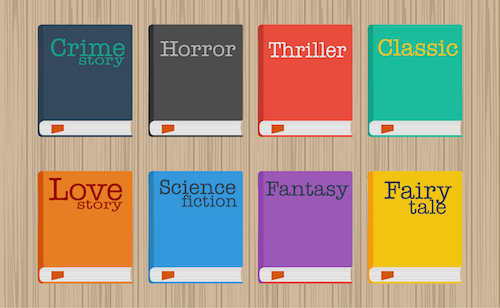
Don’t write the same genre your whole writing life. You’re probably in a rut.
- If you write literary works, try YA.
- If you write YA, try a screenplay.
- If you write screenplays, try a stage play.
- If you write romance, try sci-fi.
It’s called cross-training. By switching genres, you’re strengthening writing muscles that will help you when you return to your favorite genre. The novelist will get much better at dialogue after writing screenplays or plays. The YA writer will get much better at sentences by forcing themselves to write literary works.
Often it’s only by switching to a different mode of writing that you will unleash your full writing potential. And maybe you’ve been writing the wrong genre all along, and you’ll discover a talent for a new style.
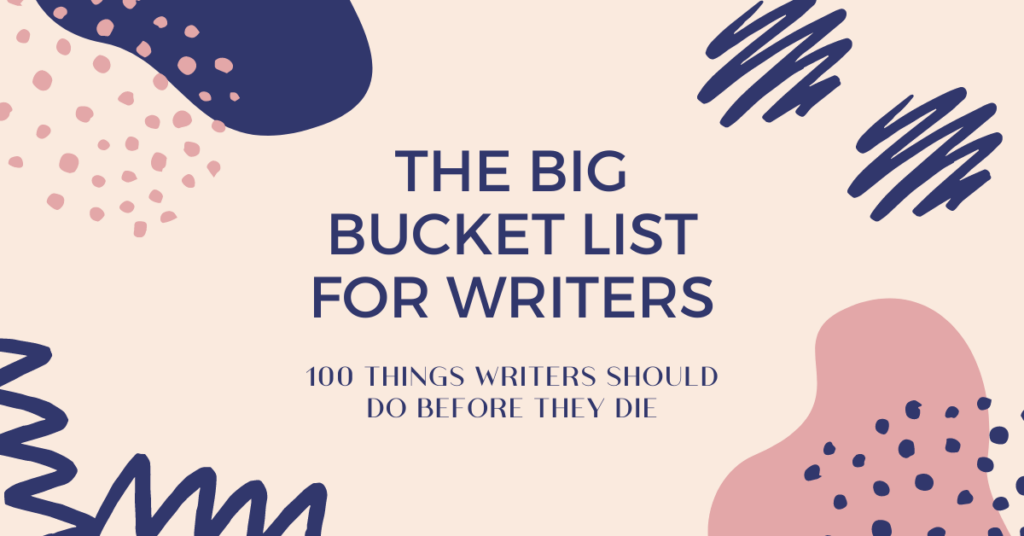

219 comments
Always love your posts….thanks
Oh, gosh. *blushes*. How kind of you to say.
Your blog is quickly becoming my personal treasure trove! Thankyou for your great advice, especially for newbies such as myself!
Hi Katalina, Great to hear that! Hope your writing is going well and you keep on getting inspired.
Wow. Am getting thrilled by your pieces of advice especially as a young writer. Learnt quite a lot here as I never thought of having a mentor or connecting to other writers on social media platforms. Thank you very much for giving yourself to this service of helping others. Rare to find people like you.
Thank you so much for your sharing and advice. So true. It’s really helpful. Thank you, thank you, thank you!
Good stuff
What is YA?
Young Adult.
YAis young adult
Inspiring, strategic information. THANK YOU! Will write a 4,000 word short story (fiction!!) with the 1,000 words a day task. Will read two bad books, will hit up my writing friends for a get together… thank you!
My father said, “If you’re so smart, why aren’t you rich?” I repeat that to myself. It keeps my ego in check.
It has also helped me to listen to other people who have different viewpoints.
Really helpful! Some were confirmation of my thoughts others gave me a real kick! Both valuable to hear. Thank you.
Some great points as always. Especially: reading “bad” books instructively.
Fellow writer and back-of-the-classroom Bookfox auditor,
Ben Qenny
Very different than the standard column and it is really good advice!
Thanks. There’s too much boilerplate advice out there and I wanted to say something different. Please share on Facebook!
Love your tips! They are really helpful.
I love your writing list, advice, and most of all the unconditional love in which it is given.
Thank you
Kathy
How gracious of you. Thank you.
Just what I needed. Thank you for these words of wisdom!
And mucho gracias for your many words of wisdom to me, sir!
Thanks for the info and encouragement. So glad I found you. I have never thought about writing every day but it makes since. What do they say about learning to play an instrument…Practice, practice, practice!
I started my month of writing 1000 words a day yesterday and you were right. I went over 1000. Thanks again
That’s great advice! Thank you for sharing.
Any advice on where to find mentors or what to look for in one?
Oh, that would be a whole other post. It should probably be someone writing in your same genre, or an editor for your genre, and you want someone who cares about your career and about what you’re writing and is willing to help you avoid the mistakes they made.
i’VE ALREADY POSTED 5 THINGS TO FOCUS ON IN FRONT OF MY COMPUTER. GREAT IDEA. PLEASE WRITE MORE ABOUT FINDING MENTORS. I HAD ONE BUT HE WRITES IN A DIFFERENT GENRE.
My God, you have given advice like an EXPERT. Thanks..it made me realize how lousy I am.
Don’t focus on how lousy you are! Take heart that everyone makes these mistakes (including me) and feel confident that you’re better equipped to navigate the writing life!
Thanks Bookfox, these are really good tips but I do feel a bit lonely re writing buddies! How do I reach out to other writers? In lockdown here in Leamington Spa England
Hi Michael, I’ve written about how to build a writing community.
Thanks you are wonderful 🙂
I am hoping to write a good book now
Do it!
I use the Habitbull Tracking app on my phone to track my goals, for everything, but writing especially. Since I have started writing daily my productivity has increased exponentially! Even though I only require “one sentence a day” I usually do much more than that, but it also allows me to have some “off” days where I still work on my manuscript in some way. I would highly recommend the app because it relies on not breaking the chain which is super motivating!
Good reminder right when I needed it most
Love all of these! Thank you so much!
I just joined the website recently and I have learnt alot. Good advices and I love your posts
Thank you for your good advice Mr. Fox…i need to practice my self to write 1000 a words in a day.
God Bless!
This is amazing. Thank you so much for the advice.
Love the advice it helps me out a lot thank you so much!!!!!!!!!(;
Thank you. The information was thought provoking and eye- opening. I loved the fifty questions . They were unique an I am sure a seasoned author would certainly love the questions which made them ponder about
about how to answer these questions. It would be a great learning experience.
Thank you for sharing timely advice! I really needed to read that today.
This is the first time I am humble enough to read an article like this. The first tip caught me. Thank you
These tips are really helpful .
I concur with all of the above. At first I had a few doubts but after reading the reasons why my eyes have been opened.
Thank you John for this insight.
Great observations to ponder on. I thank you for redirecting me back to the eye of the storm. Being a writer can be a lonely life, especially here in Africa, but being as humble as I can, helps me stay focused and your advice helps me return to ‘the purpose’.
Thanks, as always, for more advice. It does take a while to get down a strong writing ethic. It took me more than a year to perfect my first self-published book (still not perfect as far as I’m concerned) and it took a lot of patience, observing what others have done, and paying a lot of attention to details in my work and in work by other writers that I was reading. I enjoyed myself, but it was no walk in the park and in my humble opinion, I’m just getting started (still learning too). Often, it takes creating something and then sometimes scrapping everything you’ve come up with in a day’s time and it is definitely a lonely life no matter where you live.
I disagree with the fact that writers don’t make money. There are many examples to prove the contrary. However I will agree that it depends on what kind of writer you are. If you are reading this don’t get discouraged. If you wanna be a writer and make money you work hard and you make it happen. Don’t stop till your dreams come true and that exactly what I plan to do myself.
Over 38 years of writing and I still hope to make money at it. I have had to augment writing with other career opportunities just to keep writing. I often tell people, I work so I can write. One day I still hope to only write for work. Thanks for your encouragement.
Thank you. I only just came across this advice and I needed the eye-openers in here.
Loved the Hare & The Turtle-absolutely true…..
Wonderful advice Mr. Fox!! Thank you for sharing!
Do you have advice for new authors who are old (almost 70)? We probably don’t have decades left. Please don’t say write your memoirs. Hang me first.
Sam Savage published his first book when he was 66 — Firmin — and it went on to be a huge bestseller. Don’t write yourself off because of age and don’t let others write you off.
Thank you so much . I’m 14 and I’m just hoping people like you would be around to keep us youngsters on track . These advises are worth half our career.
Hi there BookFox, It took me over twenty years to finish my first novel, which is now published, along with a sequel. Thanks for all your advise, it makes me cringe to realize all the mistakes I made over the years. I also have two unpublished sequels to my series, but the cost of promoting one’s book when self-publishing is enormous. I am 73, living on my pensions. I try to write every day. Sometimes it is difficult so I push myself to write longer the next day. I am presently working on a manuscript that takes place during the Klondike Gold Rush. I live right in the middle of this history, so there is an awful lot of stories that I need to pay attention to.
Thanks again for your advice, I will reread it over and over again.
Love your story. Congrats on finishing the first novel, and good luck with publishing. Your dedication is admirable.
I enjoyed your blog
dear sir; I died and was allowed go catch a small glimps of heaven. god asked me a question, he said “ANY REGRETS” since I make stone tomahawks I said to him “yes I wanted to see how far I could have gone with them” at that point the death process reversed itself much faster than it had taken place. three weeks later god revealed to me the mathematical equation for the energy that is created by life itself and told me to write a book and to tell the whole world. I had never even read a book cover to cover in my whole life, but I wrote his book, I called it SOUL SURVIVOR. two publishers have accepted it for publication, but I have no money for such an endeavor. Do you have any advice that could be useful to me . thank you for your time E = ( In x O^2 ) ! The life energy equation.
Maybe you should go back to the tomahawks.
Checking myself! This is very insightful.
Thank you for these useful insights. As a novice writer, I am these days like a sponge, absorbing as much information as possible; never a word wasted on me when supplied by those with the experience I’ve still yet to learn. Keep them coming.
Best regards from the UK.
This is fantastic advice! I really wasn’t expecting such great info, but your post was delightfully well written and actionable. Great work, really!
Number seven is very true. I found the right mentor and went up two levels in my writing within a year. I got an agent the year after we met because of the improvements he guided me to make.
Thanks for your wonderful advice, this will go a long way in helping me, as l want to set goals for myself.
Hi JoHn!
Question: Where would a writer find a mentor? The mentor would have to be much better than the writer, correct? Do we look up “writing mentors” in the yellow pages? Do we call up writers whom we admire, and say, “Will you be my mentor?” (I doubt that.) In any case, I’d love to know.
Thanks!
Hi Andrea,
This is tough. The best place would be to go to writing conferences and retreats and develop friendships with no alternative motives. And mentorships should be born out of those friendships.
This is a good reference piece. Thanks.
Excellent advice and as I plod along in my impoverished condition, you made me laugh! But mirth is good! All the best from a sea turtle…
Thank you for such wonderful advice!
Thank you for writing the stuff that writers really need to hear. I agree with all of it!
Awesome advice! Thanks John!
This article opens up a lot in me, now that I consider myself a writer. I wish to be able to stick to the guidelines here. This should be like the ten commandments of writers!
Now this is exactly what people need (or just me and a few, I don’t know), a slap of reality that greatness needs training. Thank you for this wonderful article.
I embraced all ten points. Twenty years ago, I completed two creepy novels(fiction renditions of my nightmares). The trouble was getting anything read. I had written to a publisher and received an answer that he would be delighted to read the manuscript. I followed submission instructions and sent it off to New York with an SASE. I live in east central Florida. My manuscript came back to me in five days. No way could it have been read. Now, I’m 76 years old. I went through a series of extreme life changing experiences that I ‘m still recovering from and the only interest I’ve had was if I could self publish. Fat chance. I really don’t know what to do next.
Wow! This is amazing. Simple and precise. I relate to everything. Especially thinking I’m smart. I know I don’t know half the stuff I want to know and I still think I’m smart. My first book (historical fiction) was intended to revolutionize my readers thinking about race. I’ve heard it is a good read yet I don’t think it managed to enlighten folks or change opinions of anyone who didn’t already think openly about the abilities of Negroes during the reconstruction era. The thing about writing from your emotions is really the take-away for me. I will definitely explore that. I tend to come from my head. You know, I’m smart. Thanks loads. Keep sending me your stuff, I love it.
thanks much. got alot to ponder. i will be back to your site,needed a re-fresh & this is it !
Awesome, eye-opening advice!
I have been working on three books simultaneously. Whenever I feel brain freeze on one, I switch to another one. Then, when the ideas start flooding my brain again for the one I left, I return to it. This weekend I will be putting the finishing touches on one that I began writing a few years ago. I expect to finish another one within the next month or two. The third one still needs a bit of work. I only want to submit one at a time. I do not know how to go about finding a trustworthy agent, and publisher.
Help!!!
I found your site about a month ago, and honestly, I feel I’ve learned so much already. I thoroughly enjoy reading each new post and they never fail to get me thinking and changing my own writing practices. This particular post was an eerily timely reminder for me on a number of different points, and I’m taking your advice and taping up that list over my desk.
I’ve just downloaded your book, too, and I’m looking forward to reading it. Thank you for sharing your advice with us!
Thanks for all those kind words! I hope you enjoy the book.
Thank you so much for these tips!
I’m only thirteen, and I really enjoy writing, and I think this has helped me get a grip on not just basic steps, but really grasp the reality of good writing.
Thanks again!
These are realistic advises and I could relate several of them, specially the ‘the perfection is the stagnation’. It really is. Trying to perfect the book you are writing will not only deny its delivery on time and to the rightful reader but also rob you of the motivation to ever completing it.
“Don’t insist on writing only the perfect novel. A novel is great not in spite of its imperfections but because of them.”
I think this is the best advice! Especially for someone like me who is a little timid about writing my first book!
I’m writing poetry but think this latest email is pertinent to that, too. Very useful advice, thanks.
I am one of the “oldies”. Started writing in earnest at age 78 and after two years I am still working at it. I dabbled at writing all my life never having had such good, solid advice as you give in your column. And to think that I just came across it by happenchance! Thank you very much for sharing your writer’s experiences. I just completed a short novel. After reading you, I wonder whether I will live long enough to see it to its very end.
complete and utter gash! The endless row upon row and column after column of garbage on bookshelves today is proof of the rubbish advise here. Just write how you write, stop assimilating to others. If you never end up publishing a thing, at least you could say you did it your way.
Just to clarify, do you go by “Pure” or “Crap”?
I’m just kidding. 😛
Just because you didn’t find these tips helpful doesn’t mean they didn’t help others; same goes for the “column after column of garbage on bookshelves.” Just try to remember that behind every book is a writer trying to express something, and that you don’t have to like something for it to have quality. :3
Could you do a post on tips for younger writers? I find that most of your posts are directed towards adults. This is not helpful for me, as a twelve year old. I don’t know how to write the same genre over and over again. I’ve never written a book! Could you please help me get my writing career started?
Amazing advise, Thank you!
I am writing a spiritual creative non-fiction which is my first book. I am aiming at making it a success as this is my only support for survival. The idea is great, and the rest I am learning while I am writing although I have been training myself through several years, reading and writing a little poetry. I think if you understand exactly what really works, you can get through. Not being presumptuous here, but I understood this fact after studying a lot of creative work by famous writers.
Being on the spiritual path, and living on the edge of life, I know that surprisingly good things do happen. I don’t think I am all that smart, but all I know is that if your will, desire and goal are one, there are fair chances to achieve what you are aiming at.
My spiritual mentor, didn’t speak fluent English, but ultimately he delivered lectures and wrote several books ( may not be highly creative), in the same language successfully, spreading his teachings throughout his stay in the USA.
All I know is I enjoy writing, and there is no other thing in the world that I love as much. It took 30 years of dabbling in various vocations to realise this truth. Love and best wishes to all fellow travellers.
Your tips are wonderful!
Except 10th, I am with you
This is so amazing! Thank you so much for the insight. As a new author I’ve spent a year running around in circles chasing the very information that you’ve just presented! I was so closed to giving up (at almost my year mark, ironically) and this motivated me to keep pushing!
I’m so happy to hear that! Good luck with all your writing!
I just wanna know which Paul Auster book(s) you think is/are bad.
Ha! Great response.
Sunset Park was truly some terrible stuff.
I appreciated the timeline advice. I feel so much pressure to set a deadline that seems reasonable for self-publishing a finished novel but the more research I do, the more I feel doing it right is going to take a lot longer than 3 months. Your advice to set 5 and 10-yr goals seems reasonable in light of the overwhelming “To Do” list. And I will make more of an effort to connect with other writers who can help guide me along the way.
You are the real deal, that’s for sure. I am currently writing a book about my own life, which has spanned many decades. I have lived in a number of foreign countries. Now I reside in Bulgaria, after having spent 10 years in Russia. I am an ESL (English as Second Language) teacher. I have a Ph.D., have been in many seminars, blah-blah, spent years imitating my heroes, then found my voice writing blogs. I am witty, viciously sarcastic, driven by the sadness of now muted (if not failed) idealism. I used to be a heavy drinker and drug user. I changed my life, not by 12-steps programs, being ‘born again’ or just becoming a good boy. The fact is, all my enablers died off. I grew up at the age of 58 and have become a sort of self-made man. So I am writing about my life. It is NOT a self-help book. It is hardcore in some places, lyrical in others. Now the book has grown to 400 pages and I still have a long way to go. My instinct is just to keep writing until I say everything I feel I have to say, and then go back and edit. Like in fitness: bulk up, train down. What do you think?
Love all your emails. Thank you and I’m working on my book to get your assistance!!
so handy! thanks for the heads up, really needed to get grounded for a second.
Thanks for this great advice. I’ve only recently joined, but pleased I’ve found you.
You’re welcome!
Good advice, thank you.
I’ve written 21 novels, only 2 published. I’ve clearly not followed your suggestions…
I Love what i read, especially the point drafted in 7 and 8; these have been my challenge for long long time. i wish to have a listening ear and an advising words that wills to mentor me. really love every point of this
Great rules to follow. I live in an area where there are no writers clubs so I will be coming back here to possibly hire you as an editor. Do you edit any genre?
Emailed you.
Very good advice thank you especially for getting readers. and not writers to read your book.
I would also add the mistake of not using a grammar checking tool like Grammarly to check your writing.
Very good advice. I finally convinced myself to write my second novel after falling on my face with most of the mistakes you just mentioned and spending an insane amount of money to self-publish. I am in the waiting six week period to self-edit as I decide how to proceed. Thanks. I would love to hear more about the services you offer.
Brilliant advice for all writers not just novelists
Great advice! I love every one if these points, but the one about putting emotions on the page stood out to me. I’m one of those people who doesn’t like writing about messy emotions. It hurts to include things I either faced or similar negative situations in my fiction. (I know this goes for positive emotions too.) But when I’m in the middle of an emotional situation, that is always the best time to write that emotion. I notice I forget what it felt like if i ever come back to it later. But it’s so useful and could make fiction so much more realistic! Not to mention writing about situations or even how I’m feeling in it helps me process it. Always something good to capture and save for later. Thank you for sharing. I’m considering ways I can apply this to my novel!
Thanks,it really helpful.
Sometimes I do face difficulties in expressing out my emotions.
Thank you for tips, nice temperature check.
How does one find a mentor
A real one that supports and helps
Not one so you be a stepping stone
Of trust and faith? Is this a Google question?
Very helpful article! Thank you for sharing your experience.
Thanks for the advice, certainly a lot to think about. No. 3 gave me pause. At 74, I not dreaming of a writing career. What keeps me going, most of the time, is the pleasure I get from making something well, a well-wrought urn out of words. If it’s sufficiently well made, there ought to be at least a few people who will enjoy it. I don’t think ‘narcissistic’ is the right word to describe this. — And yes, emotions are important, but don’t people get emotional, sometimes, about ideas? Whenever I introduce an ‘idea’, one of my readers accuses me of being preachy. I think of it as a character-revealing plot device. Oh, well. I better stop now.
number 9 was really helpful thanks
#1 & #9 are just too damn good! So much truth. Thanks for this, Foxy. Your posts are so great.
I love that I found your page. And it’s super helpful for my 1st novel. I do have a question, and I’m having an issue getting an answer since I am such a newbie. Can I email you directly about what genre to place my novel?
I was lucky enough to start out with an amazing sort-of-mentor. She is much younger than I, but a far more experienced writer, though all she writes is fanfiction (and it’s terrific). I started there, too, for practice – take existing characters, develop them, find their voices (this was a great exercise in writing dialogue). Start introducing original characters. Keep it all – characters and developing story-arc – canon-consistent.
When you have that many rules to follow, you have a great framework to play in, and I did that for about 5 years before starting my first novel, now self-published on Amazon’s platform. I am now 2/3 to 1/2 done with the first draft of the sequel, which has been harder than the first to write, but which my editor thinks a better book, though she liked the first a lot.
It is so true that you can’t write just for other writers – and all the non-writers and writers alike who’ve read my first novel have asked when the next one is coming.
I plan to write this second novel, and then a third; I also plan a cookbook, written in the person of my novel’s heroine.
Have many thoughts about this list (I’m a former journalist and an now an “older writer” of fiction, with many short stories published in quality literary journals and one novel from an advance-paying publisher (he’s lost money on me) and I agree with most of this list, plus the sentiment that I wish I had listened (!) to some good advice I received when I was younger. One caveat I’ll make about the suggestion to have a mentor – it’s dangerous if you have a poor or arrogant mentor, like having a really bad or even malignant therapist or psychiatrist. The authority figure (authoritarianism instead of authoritativeness) can be devastating to a young and impressionable writer.
Hi Abe, Thanks for those thoughts. Agree about the mentorship — it really could go either way. Here’s hoping writers can find good ones!
Excellent article. Thank you!!
Thank you! My first mentor wasn’t helpful, but I agree one is needed. Finding an available published author seems like a good strategy. I’m hunting.
Thank you for all of these–especially for #10. A college writing professor, who is a published author of award-winning books, told our class to, “find a lane and stay in it”. He advised that publishers want authors who can crank out a certain genre and not “switch lanes”. I thought that was terrible advice. I write across different genres because I enjoy reading different genres. It also has helped develop my writing, I believe. I am blessed to have found a mentor who is a published author of YA books, historical fiction, and non-fiction.
Hi Donna, your first professor was right in terms of what the publishing industry wants — they do want authors to stay in their lane, because it makes it much easier to sell books and make money.
But it’s not good advice in terms of art. Glad you found a mentor that has dipped in many genres, and I hope the same for you!
Thanks! Nos. 3 & 4 have been problems for me, but I think I’m over No. 3 but still need to work on No. 4.
Hi. I’m a newcomer to this spot. I’ve been writing for 40 years, and in many ways, I write for the sheer enjoyment of it. I always kept in the back of my mind that my writing would contribute to my retirement from my chosen career. But my career ended almost a year ago and I’m still on the outside looking in. Two books with favorable reviews but nothing really spectacular. I tried all kinds of methods to promote my work, even pitching it to entertainment brokers but it’s a difficult game to place. Still trying to find an agent willing to take it and pitch it to the publishers/producers. One thing I haven’t done is give up; it’s a dream that won’t die, and all I can do is hope and think positive. Of course, I’m still working on more. I keep a blogspot and am active on other blogs. I keep telling myself, one of these days…
Thank you so much for your clarity of thought and advice. As a novice writer I’m just going to tape ALL these points to my writing folder and then keep on writing!
Thank you for the 10 writer mistakes. I agree with your assessments. Thanks for just bringing up to the for front of my mind.
Rhonda K. Gatlin
Children’s Author
“Aggie’s Purple Hands”
This is nice. It really educated me on a lot of slips. Thank you a whole lot for these tips.
Thanks.
This is great advice here! Thanks Fox! You have a lot of good things here! You have a good group of people here.
I just started work on a short story set during the civil war, going to try the 1000 words a day and finish it in a few days.
(Don’t forget to have a good album to listen to when writing!)
I am not in a writing group but my brothers and sister help me a lot,I would like to think they are my group.
I love it that this list is not the “same old stuff”. Thanks.
This is incredibly useful, especially the piece about writing for ‘readers’ and not writers. All that patience and endurance, writing is truly a tough job.
Thanks for the wonderful advice. When I read your first message which went into detail about how you learnt the art of writing, I joined the local writers centre here in Adelaide to get some help with some-one to read my novella of 52 pages, about 30K words, and they had a lot of info about writers groups so I’m going to join one at my local library and see how I go. I have previously written stage plays then screenplays and then web series (Which I produced), and thought I’d write a book from the screenplay I’d really love to produce or get produced. I’m hoping if it sold well, I might be able to find an investor. Your advice is really helpful, so thank you so much for sharing.
John,
Thank you for the sound advice. Can you add one more? How do you find a mentor?
Thank you for the good advice. I am feeling alittle overwhelmed of where to start and who to turn to as a soon to be a beginning author.
Thank you. Everything you addressed, I adopted as a waving banner to look at everyday and do something about .
Thank you for this amazing advice. It is very motivating and a bit horrifying because I don’t know how I will find my mentor. Though, I have noted down my favorites and pasted it on my wall. I just hope I don’t chicken out.
Thank you. This was very helpful and I’m going to tape all of these to my wall so I can remember them!
Hello and thank you for providing these very useful tips! Each one will provide it’s own unique dose of healthy perspective in the coming days, weeks, months and years.
Very useful
Thank you
All of this is so helpful for me. I have barely just begun writing! a book so getting all this help is phenomenal!
I’m pretty sure I desparately needed that first point. Thank you so much for being so generous with your knowledge!
thank you for the advice. I’ve never thought of it in this way.
Thanks for the post. Lots of useful advice.
Love this list. I love that it is applicable to other great endeavors one would want to pursue. Wisdom!
The best stuff, advice, and a precious precious post.
Thank you so much ! This got my mind blown.
Great tips! Thanks for sharing them. Love your newsletter, by the way. It always contains something that challenges me, inspires me, or helps me in some way with my writing career. A very valuable gem.
I love this idea that a writer should read bad writing. When I hit upon a writer or book I find overrated it is indeed helpful to analyze what I think doesn’t work. But now I’m going to try to wade through some really clunky Danielle Steele. (ouch!)
WOW!! Such helpful advice and facts. Now I know my lousiness.
Thank you so much for this! Really helpful!
Thanks so much for this. It’s really helpful. I especially loved “Endurance is the greatest virtue of the writer. Impatience is the greatest vice.” Will be posting that above my desk.
Thanks so much. This was really helpful .
How does cross-training work with branding? I’m hearing that an author must stick with their brand for publishers to take notice. Feedback would be appreciated.
That is the conventional wisdom, true. I guess you would make your publishers made if you skipped between genres. But if it helps your writing skills and your spirit, then ultimately it will help your writing career.
Great suggestions! Thank you for sharing.
Hi I found your ideas really interesting, I wrote 1,500 words yesterday which was great, I will follow your advice and look for a writing mentor 🙂 thanks
Anthony Kelly @atomicsofa
Your word on patience is a killer one.
Thank you so much for this post!
Perhaps I am misunderstanding, but should #9 read, “Be the tortoise, not the Hare?”
I only ask because it talks about endurance and the long haul. Hares (at the crappy end of the food chain) are not known for their endurance, but they do create a lot of rabbits.
Maybe we could be a Tortoise that reproduces like a Hare?
(I’ll show myself out.)
These are a list of mistakes. It’s supposed to list the wrong thing to do.
Very insightful tips. I’m working on my first novel and work like to get hooked up with a critique group. I’ve been stymied as to where to find people in a similar situation. The Writing Room which was recommended as a source allows me to sign up but not to sign on. Any suggestions?
Wonderful advice! Thank you.
I have wanted to be a writer since i was a little girl in elementary school but i am late to the game because i am now 37 and i let an almost 20 year painkiller turned heroin addiction take priority. Ive been clean now a little over 2 and a half years and during this time i have become somewhat of a hermit part my own choice because i had to sever ties with negative associates and partly because i am just focused on my family. But this list of 10 things i found them all to amazing and pertinent to me. I am going to create a twitter account after i finish this post. I have just finished writing my very first essay maybe, im not quite sure what to call it i got the prompt for the story of an old list on the johnfox website and i’m going to keep plugging along at it. I have a majority opinion of the people in my life that i should follow my dream. So any type of writer on this post that reads my post me email is : leiahkiser@yahoo.com. This article was a great help to me in helping me just become acquainted with the writers world. But yes any writer and i don’t care if you have never been published or what if you have the love for the craft like i do plz reachout to me because im at a loss of who to ask in my life so let’s form an online community. lol. but this post was great i only joined your sigh a few weeks ago and i am really finding it helpful and i am seriously considering taking acouple of the virtual classes. Looking forward to more posts! and once again writers big or small email me 🙂 sending happy thoughts and well wishes.
This was enlightening. A few things I was doing and didn’t know.
I have always loved your work and I was seeking some advice from a writer because I am in the process of writing a book but what I first did was write an excerpt or a brief synopsis which is obviously about my book. But, I don’t know how to expand my thought and make it into something bigger such as book
Hello. I’ve begun to read your posts, not because I’m a writer but because I’m a collage artist. The figures I’ve recently made are intended for a toddler/child’s book- under 200 words. Would a publisher even be interested in that kind of project? The art would tell the story. Thanks.
If the story is good enough, they might be interested. Publishers love artist/writer combinations.
WOW!! This is amazing! I don’t know where you get all this good stuff!!
oh and by the way, what’s screenplay?
I had the same question!
Going to start today. I love how you respond to people rather than always using the same old reponses.
Hi Nicole, You’re very welcome! I try to listen and to help writers as much as I can.
Wow! Excellent tips, John. SO true. You are such a support to writers! Thank you for all of your help.
Excellent post. Boy can I see myself a few years back in several of these. Embarrassing. Most important, the content is fresh. A++
First time in my writing life I have realized my mistakes. You touched the very mistakes I keep on doing over and over. The first point, hit me right in my face. I always think of myself that way (lol).
I am so thankful I signed up for your emails. So thankful indeed.
Just wish if you can read some of my writings. I have self–publised 2 short story books and 3 youngsters books years back. I realized last year that the 2 short story books were badly edited and so I asked a New Zealand editor based in Samoa to edit them for me. I have a book of 42 short stories here, that I still have doubts on self- publishing it because I have made no money in self-publishing. I have zero marketing skills.
Thank you again for the 10 important points. I have so many incomplete novels and even writing my memoir is such a toil. My memoir is about my life during the Bougainville War and how my father was assassinated and how we became fugitives. I wrote a summary for the Commonwealth online Blog and it was published in 2015 around July.
I am from the Autonomous Region of Bougainville, Papua New Guinea.
So useful thanks a lot. Can I ask if I can publish a book under the age of 18? And I don’t find any publishers online. Can you tell me about one?
Thank you
I have just recently signed up to Bookfox and have been getting your excellent emails! I’m trying to start writing a book through my summer holiday. Your emails have helped me out so much so far, thank you!
This post is amazing and so helpful! I will definitely remember these tips.
Thanks alot for this, I really love this. To be a writer is no a day job
Thanks so much for the info. I’m just getting started writing my memoir. Your content is extremely helpful. I’m struggling to keep to a schedule of writing every day. I think it’s partly do to the content I’m writing (my traumatic experiences). Any ideas on how to stay focused when the content your writing is emotionally taxing?
Thanks alot for sharing your words of wisdom! This post is surely an eye opener for me.
Your tips are well appreciated. Especially the part about ”I’ll try this out in a year,” you picked that right off my thoughts.
Did not enjoy this– I feel so exposed.
Thanks for sharing.
I’ve been resisting the urge to try a different genre, especially SyFy, which I actually like. Now might be just the time to step out of the boat. Thanks for the idea.
Great article. Good job, Book Fox!
All such great advice! I fell into several of these traps early on. I’m especially reassured by your reference to the timeline a writer should expect. I’ve been wondering if the 7-8 years I’ve invested (after work and family hours) means I’m going nowhere… but sounds like that’s about right. I’m a much better writer now, although there’s still a ways to go. The most important lesson I’ve learned along the way is accepting that you don’t know what you don’t know, and age/genre feedback is priceless! (My first two beta readers were adults, but I write YA.) The next ones were teens!
All the points on the list: sound and common-sense instructions; some of them quite brutal, but true. Points 6 & 7 can be problematic, I found. It’s a bit like playing Lottery – you either strike gold, or you don’t. Of course it would be wonderful to find like-minded people with similar goals, but I found that it is not always the case. Whether it is a dog association or canary association or writers’ group, there are people who seem to have other agendas, not necessarily aimed at supporting fellow writers in order to advance each other’s progress. I had a couple of experiences when I have fully committed my time and attention to help a fellow writer. Two years later, and I am still waiting for that person to reciprocate the favor. There are people who are simply competitive, others might be seeing their involvement in a writers’ group as a sophisticated addition to their lifestyle. Then one has to take into account different levels of advancement. It is possible that an advice given with good intentions may turn out detrimental to the final outcome. Then there is an army of self-appointed gurus out there, who are not very experienced yet are happy to preach, repeating worn out cliches they’d heard on the grapevine. So yes, chance has got a lot to do with it. The same applies when looking for a mentor – a true godsend when in luck!
I’m feeling very inspired and encouraged by this article.
This is some of the most motivational (and true) writing advice I have ever read – thank you so much for sharing! Also, if you don’t mind, I have a question.
A while back, I showed someone a draft of my writing, which was written in the third person and had third person thoughts (eg: She hunched over in front of the fire. *Why was she always such a burden on people?*). The person edited the writing and changed the thoughts to first person, while still keeping the third person narrative (eg: She hunched over in front of the fire. *Why am I always such a burden on people?*). Apparently, the first person version is more direct, but to me it just felt jarring. I preferred my version. A little while later, after I made the decision to change the thoughts back into third person, someone else told me the thoughts would be better if they were in first person perspective. But again I disagreed with them. Is it sensible to ignore their advice because it feels wrong to me, even though it’s ‘two people against one’? Or am I just being biased as the author?
Many thanks!
L
I also agree with what a couple of other people have said – it’s lovely to read a blog post written by a professional who takes the time to reply to messages! It’s so much more encouraging
If you’re writing limited 3rd (close 3rd) then it would work to say “she.”
When the narrator says “I” and it’s in their thoughts, this is usually italicized.
There’s not necessarily a right answer here, but it depends on your genre and how close of a 3rd person you’re using. More commercial genres tend to italicize thoughts and use “I”, while more literary genres tend to never italicize and to use “she.”
Hi John, I am wondering how to find the right mentor. Also I am hoping we will still have access to your videos, etc. to be able to come back and re-read your helpful information after two weeks?. Is that doable? I like to revisit in case I might need fine tuning at some point.
Hi Susan, Yes, the videos in my courses are available for at least a year, sometimes longer.
Hi John,
I’m still a newbie when it comes to writing, but I really enjoy it 🙂
One thing I’m really struggling with, though, is writing dialogues, and I was hoping you had some advice?
I’m extremely grateful for all the posts you’re putting out, and you don’t know how much you’re helping out a teen who dreams to be an author! I’ve been trying to implement all your ideas and it seems as if I’ve learnt so much more than how much I could’ve figured out alone. It’s astonishing how you exactly know the mindset of aspiring writers and you even have solutions for them.
I’m excited for all the mails I’ll be receiving in the future!
I know right!!!
Your advice is priceless. I appreciate that you give it to us straight so we remember that if we want to be a page in front of someone’s face, we are gonna have to work for it. -Many thanks, sir.
Thanks, your posts are always helpful. I appreciate it. Thanks for sharing your experiences
Number 1 hit me real hard. What about being a loner? Hmmm… Hopefully, I still have enough time and creativity in the tank to set things straight. Thanks for these tips!
I’m so grateful. I’ve learned lots and the mistakes I’ve been making like Thinking I’m smart.
I’ll put all your pointers into use. I can’t wait for your next e-mail.
Nice to meet you, John, through the words of this very encouraging article. I just signed on to the email list, and looking back over my decades of writing, I see it’s good advice! I look forward to reading more. Thanks!
Very good advice, some of which strike very close to the heart and are hard to admit. I am certainly the lone wolf but your article makes me realize I must branch out. Thank you for sharing your wisdom.
Great advice. Thinking that you are smart. Having a mentor is key. All your points are relevant to me and I will be working on them dear.
I only recently discovered your page and I think it’s going to be life-altering in terms of my journey as a writer! Thank you so so so much for all of this advice and thanks even more for making it FREE! I hope your 2020 is going well 🙂
You have made excellent points in this article–thank you. When I first began writing, I didn’t know the difference between children’s, YA, etc., until I joined a writing group. That’s when I learned how much I didn’t know. It was the best experience in learning my craft and is my strongest suggestion to writers. The most difficult thing for me was to listen to suggestions and others’ opinions about changing or improving the story. After all, my words were perfect! HA! When I discovered they were not perfect, then I made good progress in learning how to write for others.
I’m just starting to write, and I am interested in connecting with other writers to avoid being the lone wolf, and am eager for non-biased feedback on my writing. Also, I would rather connect with people I don’t know personally – call it shyness :). I just don’t know how to make that connection. I don’t know anyone personally who writes. What’s the best way to connect with other writers online?
Dear John
I’ve been sending out a query letter and sample pages for over a year and gotten no where. I’m a good literary writer but I’ve some I’ve good writer friends who’ve all helped me refine and brainstorm agents and small presses. I’m wondering if I need a tough love mentor like John Malesta to give me honest not friendly feedback on a) where I’m going wrong and b) if there’s too many strikes against me at this point. If this isn’t a question you can answer no worries. I’ve looked at Malesta’s website and it looks like quite an operation but for $300 he might give me the tough love I need. I don’t want to keep banging my head against walls until I get a concussion. Thanks John. This is a great resource.
Hi Sarah, sorry to hear it’s been such a tough road. There’s also an option of getting feedback on your manuscript to see where you can improve. Check out the developmental editing options here at Bookfox.
I love your blog!! You are so down to earth with your advice. I particularly like, “the purpose of fiction is to channel and purge reader’s emotions.”
I am in the middle of my first book, every page feels like a purge of my own emotions. I hope readers will connect with that. Thank you for your advice.
Hi Kristin,
Thanks so much! Hope the writing of your first book goes well, and you’re very welcome for the advice.
Hi John
Its inspiring and such a noble act of yours to give direction to a lot of us. Direction of any kind is so difficult in this fast paced world. I am a budding writer and joined a creative writing training for 45 days. I have written a non fiction short story in the genre of Self Help which I find interesting at the moment. I joined the community of club of writers you sent upon email and subscribed “Defeat writers block”.
I am glad I joined it.
I want to use the elements of description with literary genius to create emotions that readers can relate to, written but not told. Is there a list of Simile list that can be used in short stories non fiction including the most often used literary device.
Please advice.
Excellent tips and advice. I learn something new that I never apply in my writing experience lately. Writing is a specialty that requires both skills and talents. I learn by doing, by committing errors, and afterward observing where I turned out badly.
Excellent!!! Sign me up for recurring info:
I love this piece… I’m going to share it with my friends.
By the way, what does YA mean?
Thanks
Young Adult. It’s a genre.
Great article. It opened my eyes. Especially “read bad books” duh, this made sense to me. Thank you.
Amazing tips. Helps a lot. Would love to read more.
Good advice! I love your positive thinking most of all. You’re words are a pleasure to read!
Patience is something I struggle with so I’ve actually been trying mine. I queried for an entire year and even though I’m setting everything in line to publish my trilogy I’m still waiting for a particular publisher to send me the last rejection letter so I can move on. I promised myself I’d wait until March. But I’ve been gathering ARC readers, paid for a cover and now it’s just a matter of waiting. Paying someone as a mentor is a little difficult at the moment. I have 12 books published already, but marketing is my ruin. I’d love to afford a Publicist but good grief they’re expensive. But I love to write and will keep writing and putting things together and reading your tips and exploring and doing new things until it works…or not. It’s the journey that’s the fun part. I would never expect to get rich!
I got to explore about writing and about me as a writer thanks for giving me this opportunity
I love Nos. 6, 7, and 9. (Think I’ll have them tattooed on my left arm.). But I’ve got a disagreement with #1. I’m one of the most self-doubting people I know. It took years for me to start taking “You’re such a good writer” seriously; I thought almost every such comment was either flattery or a sign the commenter had poor taste. Therefore, I reserve the right to hold on to the idea that I might be at least *somewhat* smart. It helps me keep going on the difficult days.